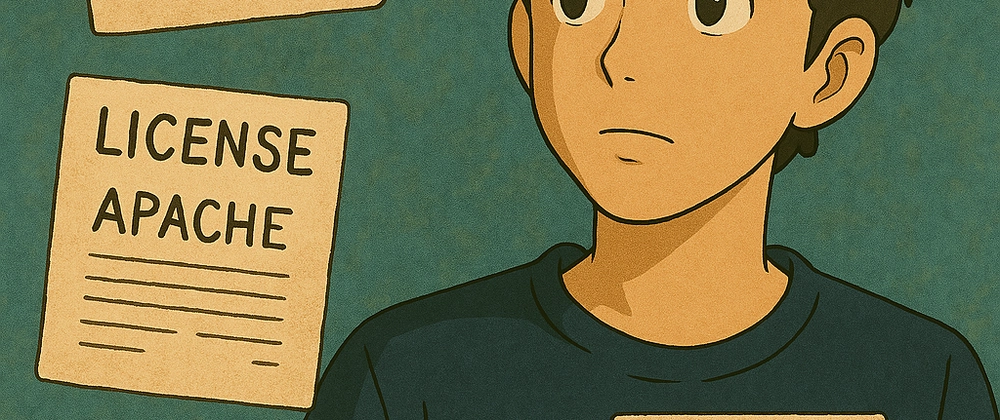You just uploaded that amazing project to GitHub! But there's one detail many developers skip or add without much thought: the LICENSE file.
It’s more than just a file — it’s a legal document that defines what others can (and can’t) do with your code.
This guide helps you understand why licenses matter, how to choose one, and what common options like MIT, Apache 2.0, and GPL really mean.
Why You Should Care About a License
There’s a common misconception: “If it’s public on GitHub, anyone can use it.”
That’s false. Without a license, all rights are reserved by default.
Without a license:
- Legal uncertainty for others
- Discourages collaboration
- Limits adoption
✅ Solution: Add a license to make usage legal and clear.
Permissive vs. Copyleft Licenses
1. Permissive Licenses
- Allow reuse, modification, even in closed-source projects
- Only require attribution and license notice
- Example: MIT, Apache 2.0
🛠 Analogy: “Use this tool however you want, just keep my name on it.”
2. Copyleft Licenses
- Require derivative projects to also remain open source
- Example: GPLv3, AGPLv3
🔁 Analogy: “Use and modify this, but share your changes under the same terms.”
Common Open Source Licenses
MIT License
- Simple and very permissive
- Ideal for: maximum flexibility and adoption
Apache 2.0
- Similar to MIT, but with added patent protection
- Ideal for: projects where legal clarity matters (e.g. corporate use)
GPLv3
- Requires that modified and distributed versions stay under GPL
- Protects openness long term
AGPLv3
- Like GPLv3 but also applies to software offered over the web
- Ideal for: web services, APIs, SaaS tools
How to Choose?
- Want max freedom (even for commercial use)? → MIT or Apache 2.0
- Want improvements to stay open source? → GPLv3
- Running a web app or API? → AGPLv3
- Concerned about patents? → Avoid MIT, consider Apache or GPL/AGPL
Need help? Check choosealicense.com
How to Add a License on GitHub
- Create a
LICENSEfile in the root - Paste the full license text (no edits)
- Mention the license in your
README.md - GitHub has built-in license templates during repo creation
Docs, Images, and Other Non-Code Content?
If your repo includes tutorials, images, or datasets, consider a Creative Commons license instead of a software license.
More at: creativecommons.org
Disclaimer
This is not legal advice. For critical decisions or company policies, talk to a legal professional.
Final Thoughts
Licensing isn’t just a formality — it’s a way to protect your work and help the community grow safely.
It:
- Clarifies rights and usage
- Encourages contributions
- Builds trust and adoption
So next time you upload a repo, remember: a LICENSE file is small, but it makes a big impact.
Did this help?
Let me know in the comments or share it with someone who might need it.



Top comments (0)